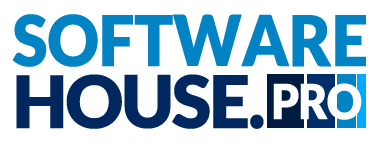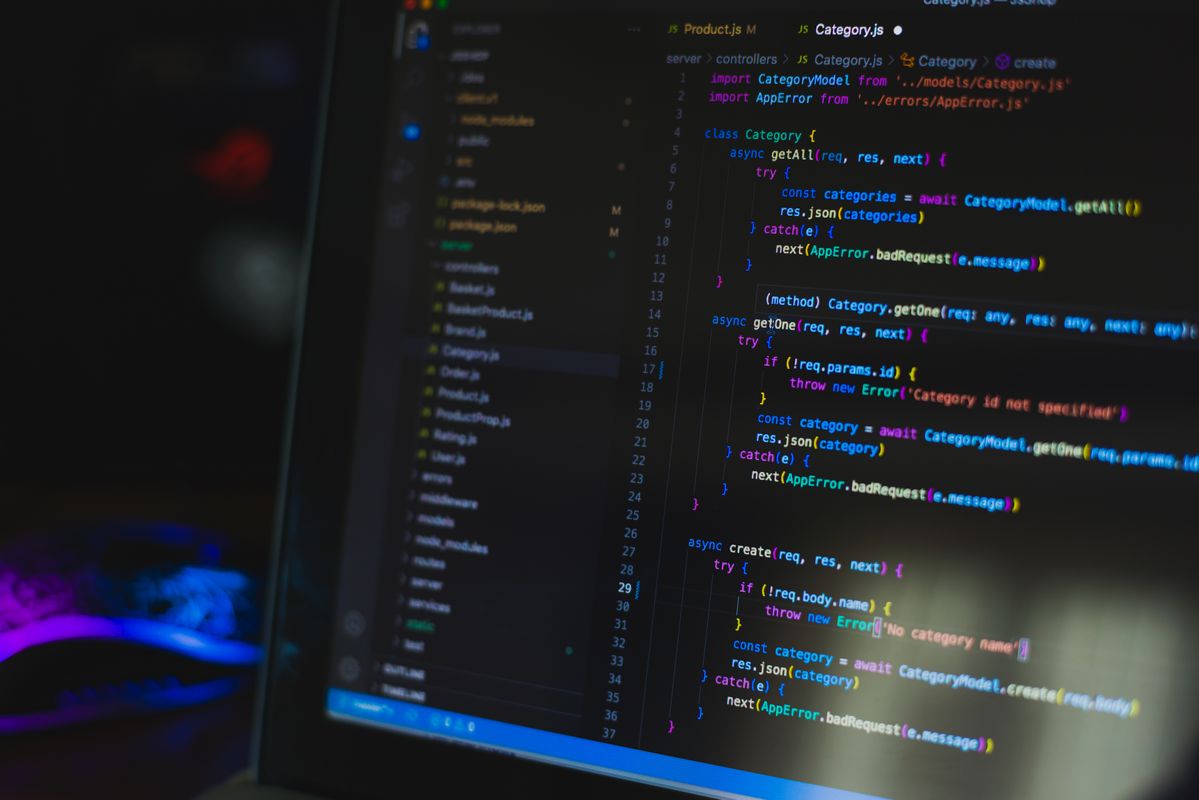Table of contents:
1. The Importance Of Proper Encryption 2. The Significance of Strong Password Hashing 3. The Significance of Secure Password Hashing 4. The Importance of Proactive Security Measures in PHP Application Development 5. The Relevance of PHP Application Security AuditsBest Practices for Securing PHP Applications
With PHP being one of the most widely used programming languages, ensuring its applications are secure from cyber threats is crucial. The first best practice for securing PHP applications is conducting proper input validation. This process involves checking and validating any user input before it's used by the application to prevent SQL injection attacks. Secondly, always employ the use of prepared statements with parameterized queries. This technique helps protect the application from SQL injection even if user data contains malicious code. Additionally, keep your PHP version and libraries updated to protect against known exploits targeting old versions.
Another best practice is the use of secure password hashing. The PHP function password_hash() implements strong hashing and salting, making it difficult for attackers to break. Also, protect sensitive data by implementing proper encryption, either through HTTPS for data in transit or functions like openssl_encrypt() for data at rest. Remember to enforce secure sessions and cookies. Use secure and httpOnly flags for your cookies and regenerate session ID after login. Lastly, restrain error information from users; unhandled exceptions can expose sensitive information, so use custom error handling functions.
Common Pitfalls in PHP Application Security
Despite these best practices, there are nevertheless common pitfalls that developers need to avoid in PHP application security. One of the most common is failing to validate user input adequately, which can leave an application open to a variety of attacks. Additionally, neglecting to update the PHP environment and libraries can result in exposure to known vulnerabilities. It's essential to regularly update your environment to the latest secure versions.
Another common pitfall in PHP application security is storing sensitive information in plain text. This includes passwords, which should always be hashed with a secure function that includes a unique salt. Using PHP's inbuilt functions like password_hash() can help prevent this pitfall. Similarly, mishandling session and cookie data can lead to session fixation or session sidejacking attacks. Managing errors improperly can disclose sensitive application details to malicious users, so avoid showing detailed PHP errors to end-users. Instead, log them for debugging purposes and show a generic error message on the front end.
Understanding PHP Application Security is Key
Effective PHP application security depends on understanding the best practices and avoiding the common pitfalls. Keeping up to date with the latest PHP updates ensures that you take advantage of the latest security enhancements and preventative measures. However, even with updated software, it's essential to implement secure coding practices such as input validation and secure password hashing. It's also advisable for PHP developers to be proactive in understanding potential security threats and defenses to prevent unexpected breaches.
Equally, understanding common pitfalls can help to highlight areas of focus. PHP application security isn't just about avoiding known issues but learning to foresee potential problems before they happen. To ensure this, constant security training, reading about security trends, and using tools to scan for weaknesses regularly will go a long way in ensuring your PHP application is secure. Ultimately, designing with security in mind from the onset will help prevent many common security pitfalls, ensuring robust and secure PHP applications.

The Importance Of Proper Encryption
When it comes to improving the security of PHP applications, encryption holds a paramount place. By encrypting sensitive data, developers can ensure that even if a security breach occurs and user data is stolen, the intercepted data remains illegible to the attacker due to the encryption. PHP provides several inbuilt encryption methods, such as OpenSSL, which can help secure data. Using these methods allows sensitive information to remain confidential by scrambling the data, rendering it unreadable to outsiders. The encryption algorithm transforms data from a readable form to a scrambled version which can only be turned back to its original form with the correct decryption key. On another note, developers need to ensure that sensitive data in transit are securely passed over networks, and this can be achieved through HTTPS protocol.
The Role of User Inputs in PHP Application Security
Another integral part of PHP application security is managing user inputs. Web applications often contain forms requiring user input for various functions. This exposes web applications to risks as hackers often exploit user inputs for malicious activities such as SQL injection attacks. It is, therefore, crucial to validate and sanitize user inputs to prevent these kind of attacks. PHP provides several builtin functions that can be used to sanitize user input such as filter_input(). Moreover, it is advisable to have a whitelist-based validation system instead of blacklist-based one to ensure only predetermined safe inputs are accepted. This technique ensures that no unexpected input can be passed to the application, fortifying the defense against common attack vectors.
Impact of Regular Software Updates On PHP Application Security
Keeping a PHP environment and its libraries updated is an essential task in maintaining robust security for PHP applications. Outdated software often has known vulnerabilities, which can be utilized by hackers. By regularly updating the PHP environment and libraries, developers can ensure that they are arming their applications with the latest security measures and prevent known exploits. It's important to balance the desire for the latest features with the need for secure, stable versions. It should also be noteworthy that, whenever a new version is released, it's vital to thoroughly test it in a secure environment before applying it to live applications.

The Significance of Strong Password Hashing
Passwords play a critical role in the security of PHP applications. It is instrumental to hash passwords rather than storing them in plain text format for enhanced safety. With PHP's inbuilt function such as password_hash(), developers can implement a secure method of storing passwords. This function creates unique salt for each user's password and hashes it. The resultant hashed password is extremely difficult for attackers to crack, thus protecting user's sensitive data. Using strong hashing and salt methods can add an additional layer of protection against threats like brute force attacks. It is also a good practice to compel the users to create complex passwords with a mix of characters to further strengthen the security of your application.
Secure Session Tracking and Cookie Management
A common vulnerability in PHP applications arises from neglect or improper handling of session tracking and cookie management. To mitigate the risk of session hijacking attacks, developers should use secure settings for PHP sessions. Using secure settings include setting the cookie flags to "secure" and "httponly", which ensure that cookies are transmitted only over secure HTTPS connections and are not accessible by JavaScript respectively. Furthermore, it is a best practice to regenerate the session ID after a successful login to reduce the risk of session fixation attacks. Understanding and effectively managing sessions and cookies holds paramount importance in fortifying an application's security.
Error Handling – A Vital Aspect of PHP Application Security
Errors can provide vital information to the developers regarding the application, but they can also expose sensitive information to the malicious users if not handled properly. A good practice is to create a custom error handling function that catches the error, logs the necessary details for the developers to debug, and then shows a generic error message to the users. This approach ensures that the end user does not get any insight about the internals of the application, thus preventing information leakage. Proper error handling not only aids in efficient debugging but is also a strong deterrent against potential security threats.
| Best Practice | Description | Pitfall | Consequence | Remedy |
|---|---|---|---|---|
| Proper Input Validation | Checking and validating user input before application use. | Failing to validate user input. | Exposure to a variety of attacks. | Use PHP builtin functions to validate and sanitize inputs. |
| Use of Prepared Statements | Protects application from SQL injection. | Not using prepared statements. | Potential SQL injection attacks. | Always employ parameterized queries. |
| Secure Password Hashing | Making passwords difficult for attackers to crack. | Storing passwords in plain text. | Exposure of sensitive information. | Use password_hash() function. |
| Proper Encryption | Protects sensitive data during storage and transit. | Mishandling sensitive data. | Potential data breach. | Employ proper encryption methods and HTTPS protocol. |
| Regular Software Updates | Keeps the application secure against known exploits. | Neglecting software updates | Exposure to known vulnerabilities. | Regularly update PHP environment and libraries. |
The Significance of Secure Password Hashing
Proper password management is another essential aspect of PHP application security. Storing passwords in plain text is a common pitfall that often leads to data breaches. Therefore, always hash passwords using PHP's built-in functions like password_hash(). This function helps to generate a random salt and applies it to the password hash, increasing the security level. Furthermore, the use of strong, unique salts for each password hash ensures that even identical passwords have different hashes, thus mitigating the risk of rainbow table attacks. It also makes it nearly impossible for hackers to reverse-engineer the original password from the hash. Thus, secure password hashing protects both the user's password and the integrity of the system's data.
The Necessity of Secure Sessions and Cookies Management
Managing sessions and cookies securely is important in maintaining a secure user experience within your PHP applications. Without proper handling, session and cookie data could potentiate session fixation or session sidejacking attacks. This is where PHP's built-in session management functions come into play. The first step in secure session management is using the secure and httpOnly flags for your cookies. Also, regenerating the session ID after a successful user login is significantly vital as it helps protect against session fixation attacks by providing a new session ID. Remember, storing sensitive data in sessions or cookies should be minimized or ideally avoided because if an attacker gains access to session or cookie data, it can lead to serious security breaches.
Managing Error Information as a Security Measure
One often overlooked area in PHP application security is the handling of error information. Unhandled exceptions can contain sensitive information, like system file paths or database details, that can aid a malicious attacker in infiltrating your application. Therefore, instead of displaying excessive error details to end-users, use PHP's built-in functions for custom error handling to log errors for later diagnosis while displaying only a generic error message to the user. Remember, the more specifics an attacker has about the system, the easier it is for them to bypass its defenses. Thus, organic error handling is a discreet but essential element of PHP application security.
The Importance of Proactive Security Measures in PHP Application Development
The development of PHP applications is characterised not only by putting together robust functionalities and smooth user interfaces, but also by implementing proactive security features, both on the front-end and back-end of the application. This involves identifying potential vulnerabilities, nullifying them and setting up defences to prevent future attacks. The importance of being ahead of the curve by foreseeing potential risks and mitigating them is neatly encapsulated in the following quote:
"Effective PHP application security depends on understanding the best practices and avoiding the common pitfalls. However, even with updated software, it's essential to implement secure coding practices... also advisable for PHP developers to be proactive in understanding potential security threats and defenses to prevent unexpected breaches."
The Role of Ongoing PHP Security Education and Training in Application Security
As with any field in technology, PHP application security also requires developers to constantly update themselves with the latest in security threats, breakthroughs, practices, and frameworks. This necessitates routine training, conducting security drills, and imparting education about the importance of security in application development. This idea of continuous learning to enhance application security is summarized in the following quote:
"As PHP application security is a dynamic field where new threats emerge frequently...Regular training and continuous learning can equip developers with the requisite skills and knowledge to secure their PHP applications effectively... Therefore, adopting a proactive learning approach can significantly enhance the application security landscape."
The Essentiality of Regular Security Training and Continuous Learning for PHP Developers
As PHP application security is a dynamic field where new threats emerge frequently, it's imperative for developers to stay up-to-date with the latest threats and defense mechanisms. Regular training and continuous learning can equip developers with the requisite skills and knowledge to secure their PHP applications effectively. Security aspects like input validation, use of prepared statements, secure password hashing, proper encryption, software updates, session and cookie management, and error handling require thorough understanding and correct application. Therefore, adopting a proactive learning approach can significantly enhance the application security landscape. The following are some of the key areas where a PHP developer should focus:
- Staying abreast of latest PHP updates and security enhancements: Regularly follow the official PHP documentation and related credible resources to stay informed about the latest updates, especially about the security-related enhancements.
- Understanding potential security threats: Knowing about common security threats and the ways to mitigate them can fortify application security. It includes threats like SQL injection, Cross-Site Scripting (XSS), Cross-Site Request Forgery (CSRF), and others.
- Mastering secure coding practices: Always validate user inputs, use prepared statements, hash passwords using PHP's inbuilt functions, enforce secure sessions and cookies, etc., to make your application resilient against common security issues.
- Continuous learning: Adapt to new methodologies and practices in PHP application security. Learn from recognized security courses, books, web articles, webinars, and other trustworthy sources to broaden your knowledge and skills in application security.
- Using tools and libraries: Implement security scanners and libraries that can help to scan for weaknesses in your PHP code regularly and reinforce your application's security.
The Relevance of PHP Application Security Audits
With the rise in cyber threats, PHP application security audits have become a vital process in maintaining robust security measures. A PHP security audit involves systematically assessing the security of an application by identifying potential vulnerabilities and taking steps to fix them. This process provides insights into the effectiveness of the existing security measures and identifies areas for improvement. Security audits should not be a one-off exercise, but a periodic task to ensure ongoing security. During an audit, aspects like input validation, encryption, password hashing, session and cookie management, and error handling are examined to root out any security weaknesses. Overall, conducting security audits is a crucial step in foreseeing potential problems and preventing them before they can manifest into actual threats.
The Significance of Secure Coding Practices in PHP
While latest updates and security enhancements are important, they're complemented by the habit of implementing secure coding practices. Essential secure coding involves writing code in such a manner that it mitigates the risk of unintended behavior, which could potentially be leveraged by attackers. Secure coding practices include avoiding the use of functions susceptible to buffer overflow attacks, securing user inputs by applying proper validation and sanitization, and implementing proper error and exception handling to prevent information leakage. Such practices also encompass securing session handling and applying principle of least privilege by using minimal user rights. Mastering these aspects hence forms a cornerstone in PHP application security.
Understanding the Role of Regular Security Training for PHP Developers
PHP application security is a constantly evolving field, with new vulnerabilities being detected and patches being released on a regular basis. PHP developers, therefore, need to keep their skills up-to-date with regular security training. Regular training involves learning about the latest security threats and the defensive measures to combat them. Developers should also be trained in secure coding practices and on how to use security tools and libraries effectively. Additionally, as best practices evolve over time, continuous learning allows developers to adapt to the changing security landscape and enhance their ability to secure their PHP applications based on the latest guidelines. Overall, an on-going training regimen for PHP developers is pivotal in ensuring robust security for PHP applications.
Frequently Asked Questions
-
What are some best practices for PHP application security?
Best practices include data validation to ensure data integrity, proper error handling to hide internal details of the system from users, use of HTTPS protocol to ensure secure data transmission, secure database connections to prevent SQL Injection and updating PHP to the latest version for updated security features.
-
What are some common pitfalls in PHP application security?
Some common pitfalls in PHP application security include poor error handling which exposes system details, not updating PHP to the latest version leaving it vulnerable to attacks, not testing or validating user inputs thus leaving the system vulnerable to injection attacks, and insecure database connections.
-
What is the importance of encoding and escaping data in PHP?
Encoding and escaping data in PHP is important because it prevents Cross-site Scripting (XSS) attacks. This happens when an attacker injects malicious scripts into content being sent to a web browser, often through input forms. By encoding and escaping data, you ensure that these scripts are not executable, hence securing your application.
-
Why is using HTTPS protocol critical for PHP application security?
Using HTTPS protocol is critical for PHP application security because it encrypts data transmission between the user and the server. This prevents Man-In-The-Middle attacks where a third party can intercept and potentially alter the data being transmitted. By using HTTPS, you assure data privacy and integrity.
-
Why is testing and validating user inputs important in PHP security?
Testing and validating user inputs is important in PHP security because it prevents injection attacks. These occur when an attacker injects malicious code into the system through inputs in forms. By validating and sanitizing these inputs, you prevent such code from being executed and hence secure your system.






